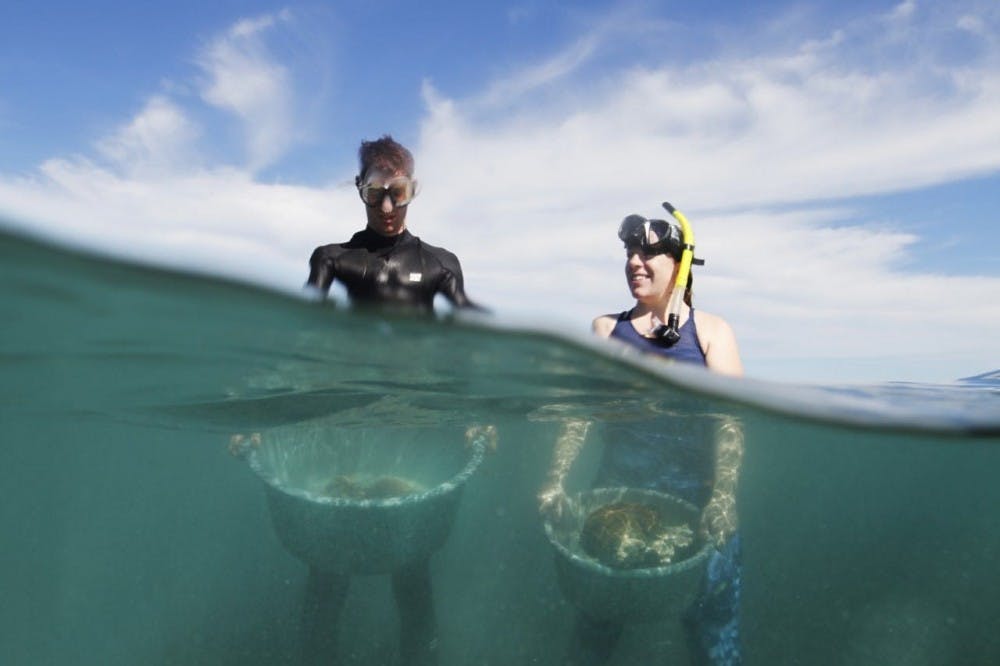Although disease outbreaks and climate change have caused an 80 percent decline in coral cover in the Caribbean since the 1970s, a UNC Ph.D. student in the Department of Marine Sciences discovered that some species of coral in Belize grow faster in the harsh environment along the coastline than they do farther from shore.
Justin Baumann, the leader of the project, said he studied two species of coral: the massive starlet coral (Siderastrea siderea) and symmetrical brain coral (Pseudodiploria strigosa) that seemed to grow faster in a particular coastline environment in Belize, despite the prevalence of human interference and runoff that could harm them.
“We’ve identified a stress-tolerant coral, and we've identified that in the near shore areas of the reef — closer to shore, further from the open ocean and further from the main reef structure — these corals are subjected to conditions that allow them to essentially acclimate to climate change or just stress in general,” Baumann said.
To test the hypothesis, Ph.D. student Colleen Bove said she and Baumann transplanted coral samples between in-shore and off-shore environments in order to measure their resilience.
“We sectioned the corals and half of them we put back on the reef where we collected it, and then the other half we transplanted to the other site. We did that for both sites so corals were located at both of the sites they were collected from as well as this new reef,” she said.
Baumann said they're trying to prove that the variability of conditions in the harsh, coastal environment of these coral species has allowed them to better cope with climate change.
“In the in-shore it’s shallow, it’s really murky, there’s a lot of sediment, there’s a lot of runoff from land — all those things are considered to be bad — but these corals are still doing okay,” he said. “On top of that, the temperature in the near shore environments fluctuates a lot more than it does on the main reefs.”
Karl Castillo, a professor in the Marine Sciences Department, said depending on the outcome of the study, the information it yields could help Caribbean nations protect their coral reefs more efficiently.
“In Belize, marine-protected areas are co-managed by the government of Belize and by local NGOs, so depending on the resources you have available, if you know what reefs you're able to protect, then you can make sure that you focus your resources on those areas,” he said.




